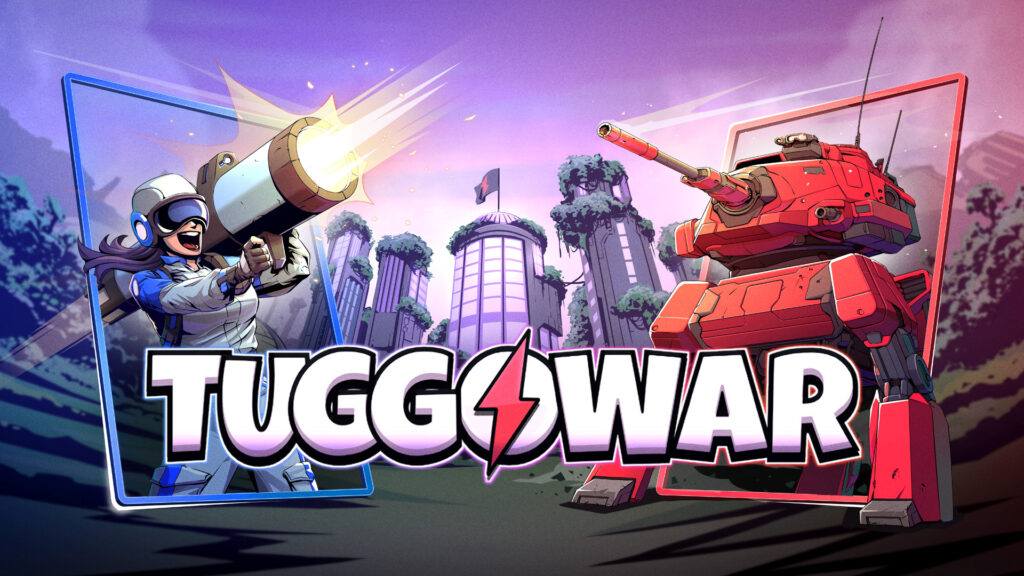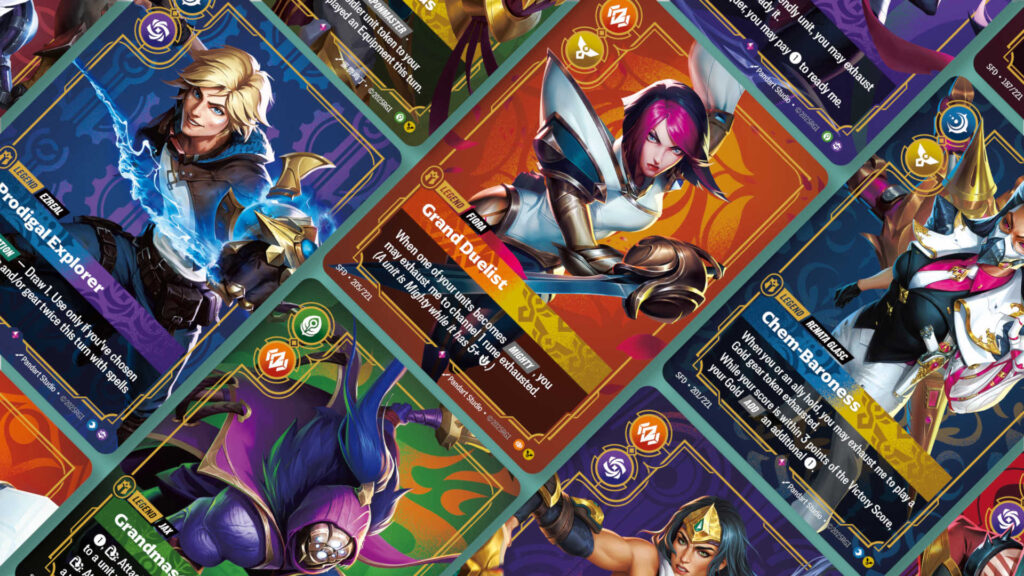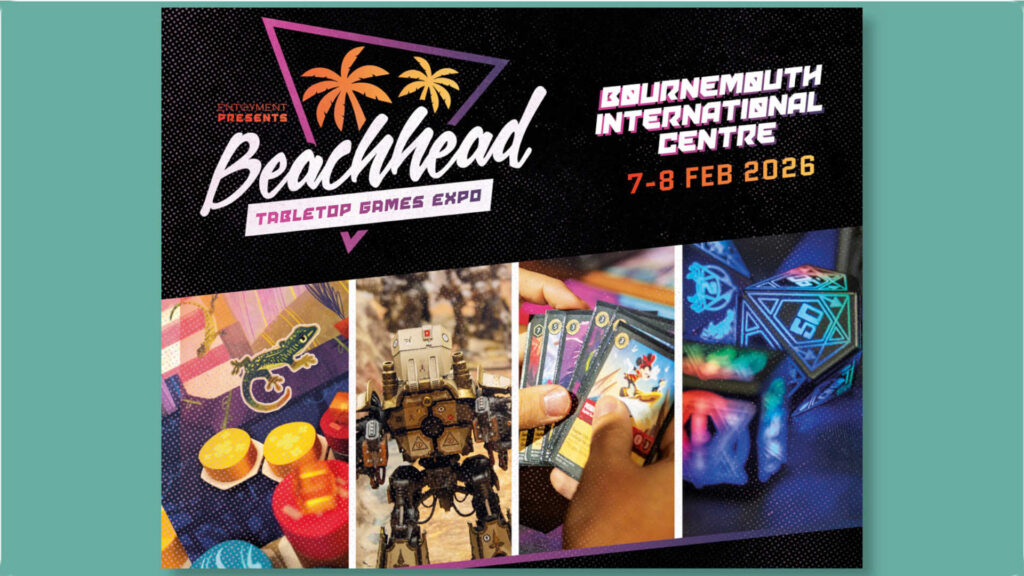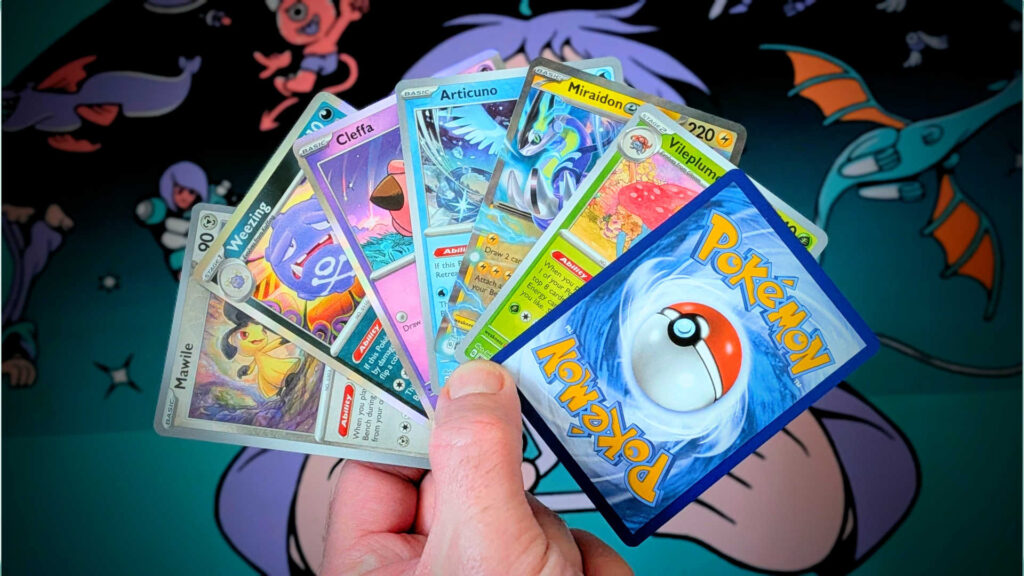Tuggowar images courtesy of Tension Games
In the world of digital deckbuilders, titans such as Slay the Spire and Balatro have taken up the top spots in the conversation of the best games from the genre. These roguelike deckbuilders have iterated on the tried-and-tested formula and produced games which have broken the mold and proceeded to dominate the charts for their gameplay and polish.
These two games are both single player games, where we build up a deck throughout a series of rounds to finally take on the final boss at the end of the round.
But that’s not the entire breadth of the deckbuilder genre. Dominion, one of the most influential board games to date, popularized deckbuilders to the tabletop community and has spawned several other games such as Ascension: Chronicle of the Godslayer, Star Realms, Legendary, Clank!, and even a board game adaptation of Slay the Spire. It definitely wouldn’t be a stretch to say that the current roguelike deckbuilders have taken some lessons from these board game classics.
In these games, the deckbuilding is all done against a table of other players, where we all draft from a fixed pool of cards and engage in combat with one another. There’s no encounter and node system where we can refine our deck little by little; we have to think on the fly and craft our decks in response to what our opponents are doing!
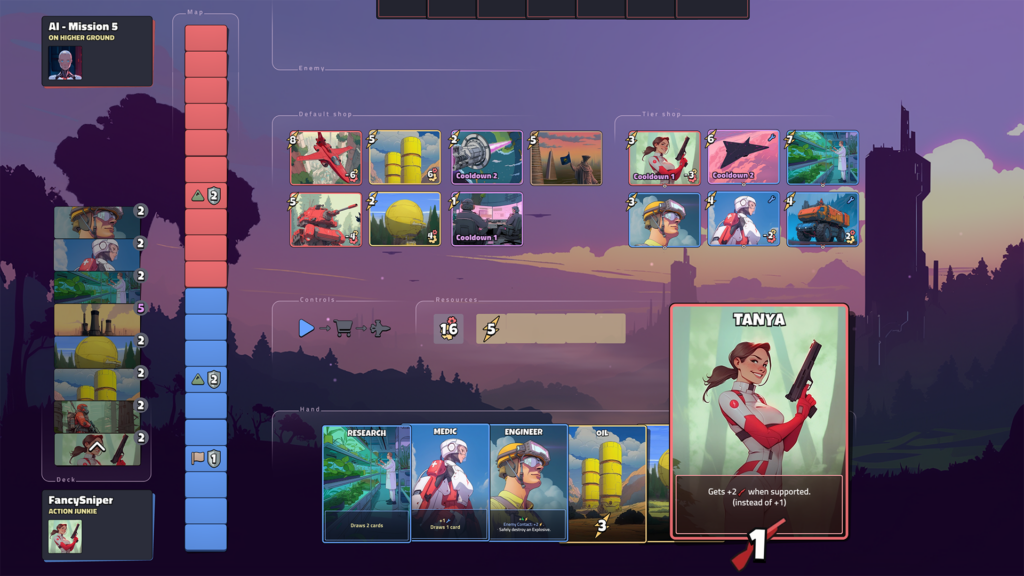
Tuggowar by Tension Games, a newly-released deckbuilding game on Steam, follows the footsteps of these iconic games – a deckbuilder played out on a linear map instead of life totals or victory points, similar to a Real-Time Strategy (RTS) game.
The game was developed by two former professional Magic: the Gathering and Top 50 Hearthstone players in the EU server.
Table of Contents
ToggleTuggowar‘s Gameplay Loop
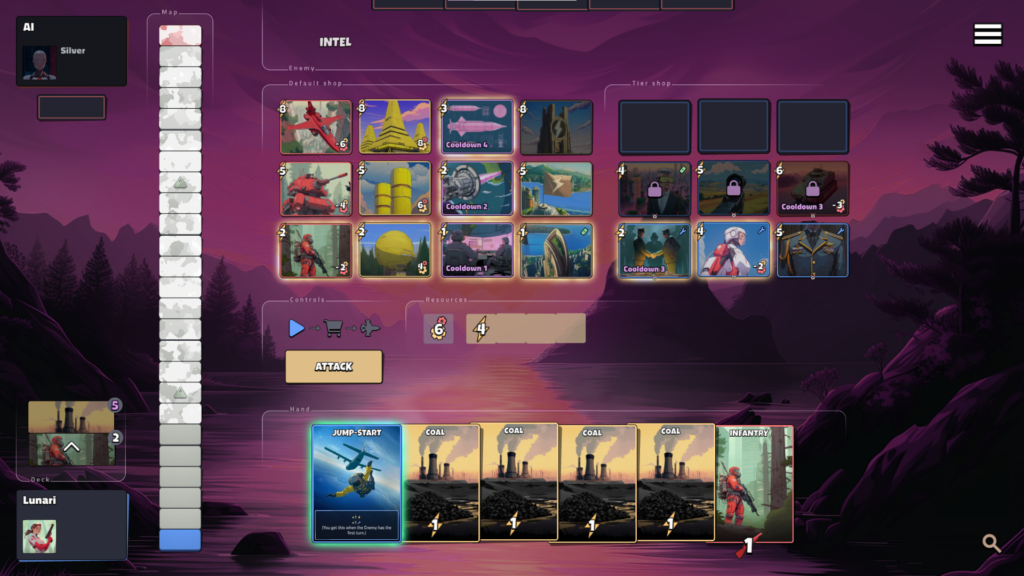
In Tuggowar, we begin the game with a basic deck consisting of Infantry and Coal. Infantry provides damage and advances our place on the map, while Coal generates Energy, which is used to buy more cards from the shop.
Each turn is divided into three phases: we play our cards, purchase, then attack. Other cards from the shop have different abilities, such as drawing extra cards, supporting units, or even disabling and outright destroying other cards!

The Shop is divided into two sections: the Default shop on the left is the same for both players; these contain the basic Energy, unit, and tech cards, while the Tier Shop on the right can be different between each player and changes from game-to-game. This adds a layer of scouting and counterplay to the game, which was an enjoyable experience.
And of course, randomized Shops means that players can’t just force the same combo every single game, and are required to make up strategies on the fly!
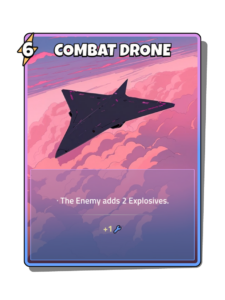
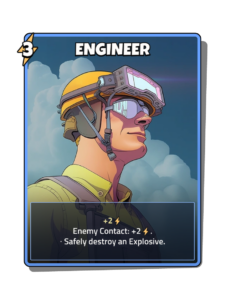
For instance, if the enemy decides to play a Combat Drone, we can counter this by purchasing our own Engineer to blow up Explosives placed in our deck.
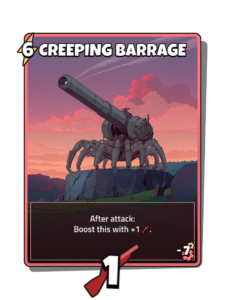
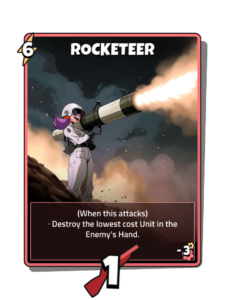
Meanwhile, if the opponent seems to be ramping up for an inevitable endgame through units such as the infinitely-scaling Creeping Barrage, we answer through cards such as Rocketeer. There are many more soft and hard counters scattered throughout the game, and part of the skill is recognizing which lines are available in each shop, and what the opponent’s strategy is.
The game ends when one player manages to capture all the tiles on the map.
Understanding Tuggowar‘s Mechanics
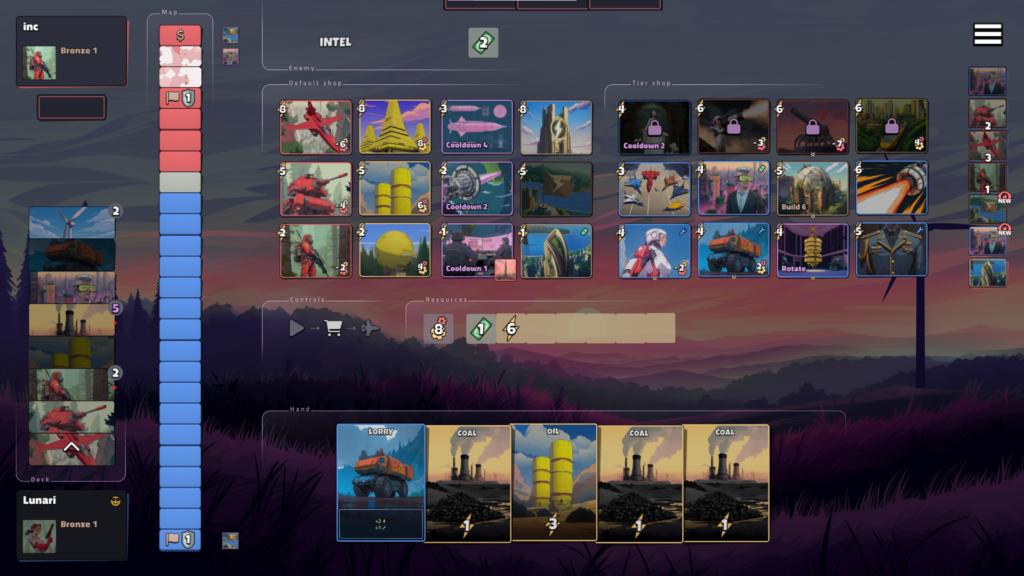
Certain cards may generate or take up Production, which is the little gear icon on the bottom right of the card. When we buy Energy cards, we generally gain Production. But when we buy offensive units, we generally use up Production. This means that our deck gets capped by how much Production we have, which results in interesting decision points: do we dare add more Energy cards and dilute our deck for another Fighter, or can we just invest in support effects?
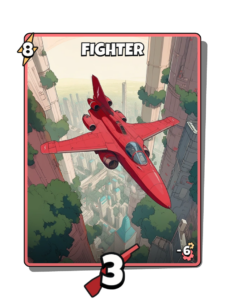
While the deck is randomized, it isn’t pure RNG. Other games utilize a deck and discard pile system, where we shuffle up the discard pile into the deck once we’re out of cards. Tuggowar innovates with the Hot Streak system, wherein our hand is weighted on whether or not we’ve recently drawn the cards, with a preference for cards we have yet to draw. With this in mind, we can plan out succeeding turns since we know which cards we’re about to get.
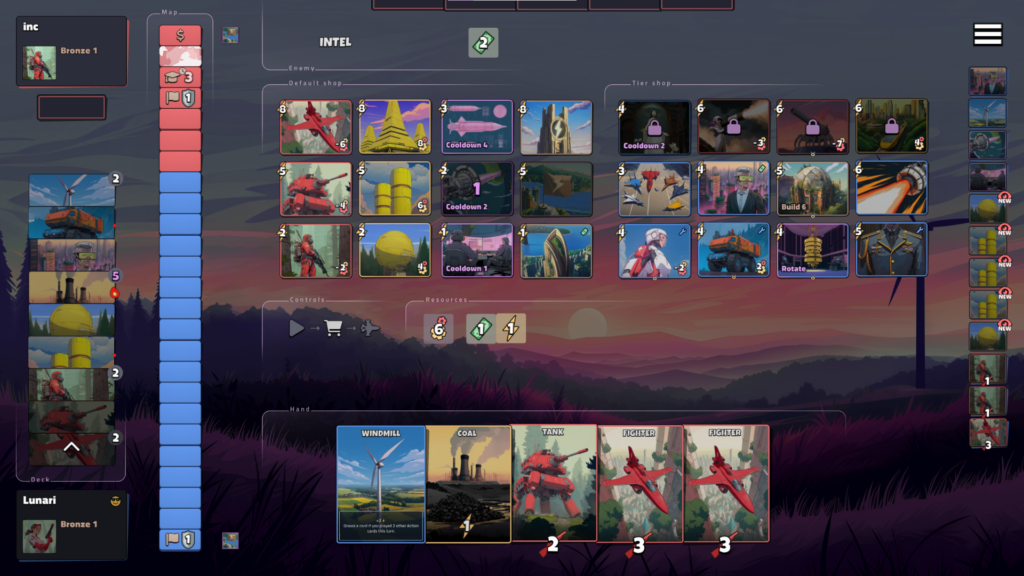
Some cards also come with a cooldown: Counterfeit, Disrupt, and Inform. Counterfeit lets us copy a card from the opponent’s shop, giving it a discount, while Inform enables us to see the opponent’s board (if it’s hidden by fog of war), or the opponent’s new cards.
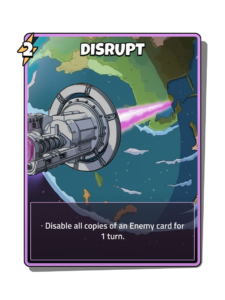
Disrupt, though, is one of the strongest actions in the game and will take time to master. As it says on the tin, Disrupt messes up the opponent’s game plan. When we purchase this action, we control which card to disable on the opponent’s side; early on, slowing down their Energy is great, while in the late game, taking out key units thwarts their plans.
Tuggowar Game Modes
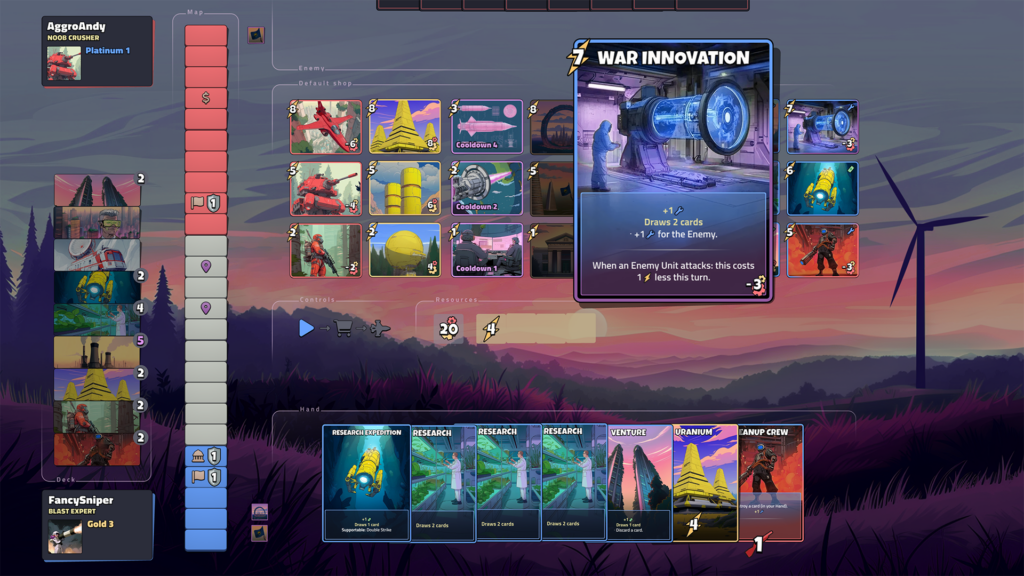
While PVP seems to be the main draw of the game, there are also PVE matches to be played against bots.
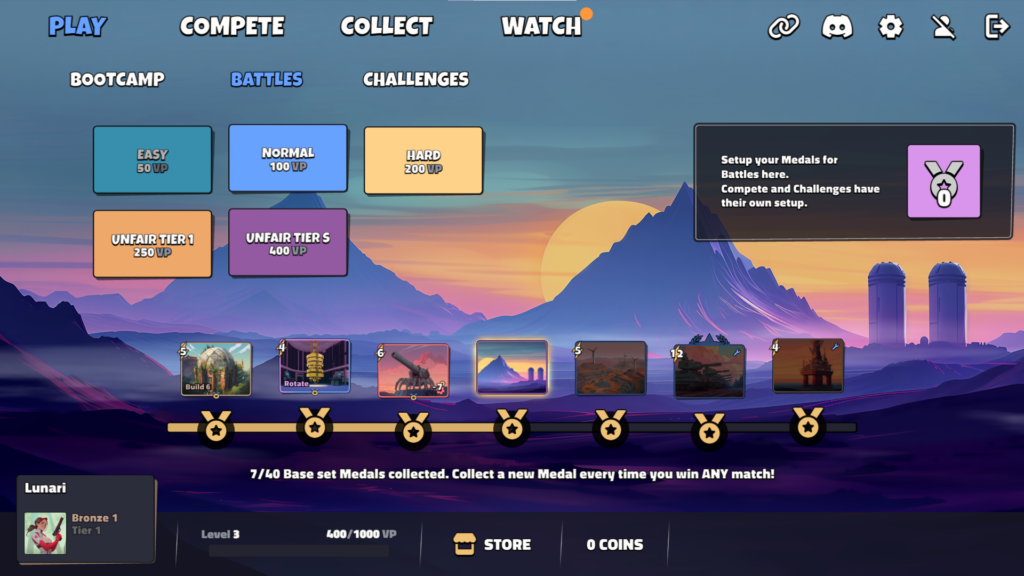
The Bootcamp teaches new players the ropes of the game. Meanwhile, Battles have varying difficulties and better rewards to level up and gain coins. Finally, Challenges is a multi-game mode where winning seven games in a row rewards better prizes and Medals.
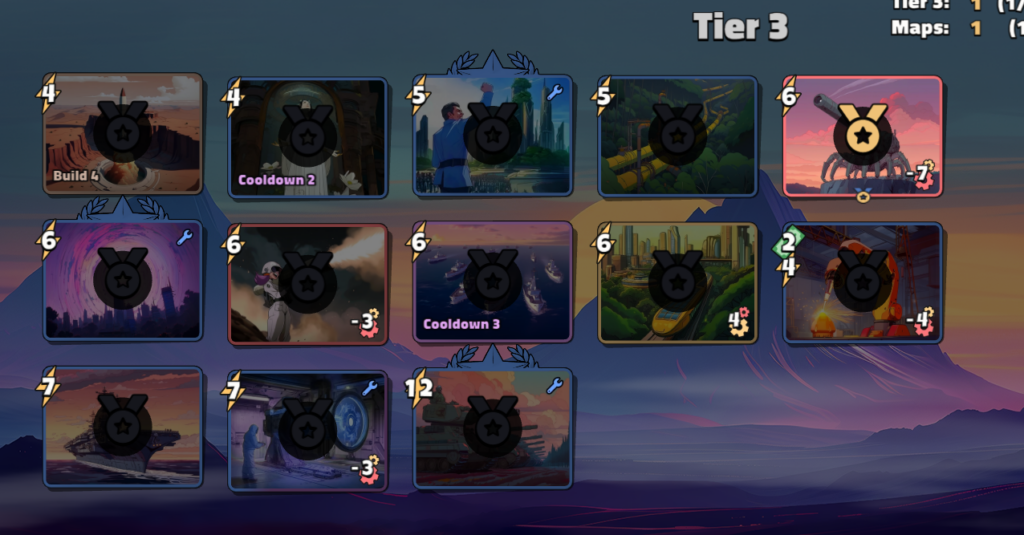
All of these game modes come back to medals, a balancing factor in the game. While there are several dozens of cards in the game, and many more in the four expansions currently released, players can influence the randomized shop by earning Medals on specific cards, making them more likely to be included at the start of the game.
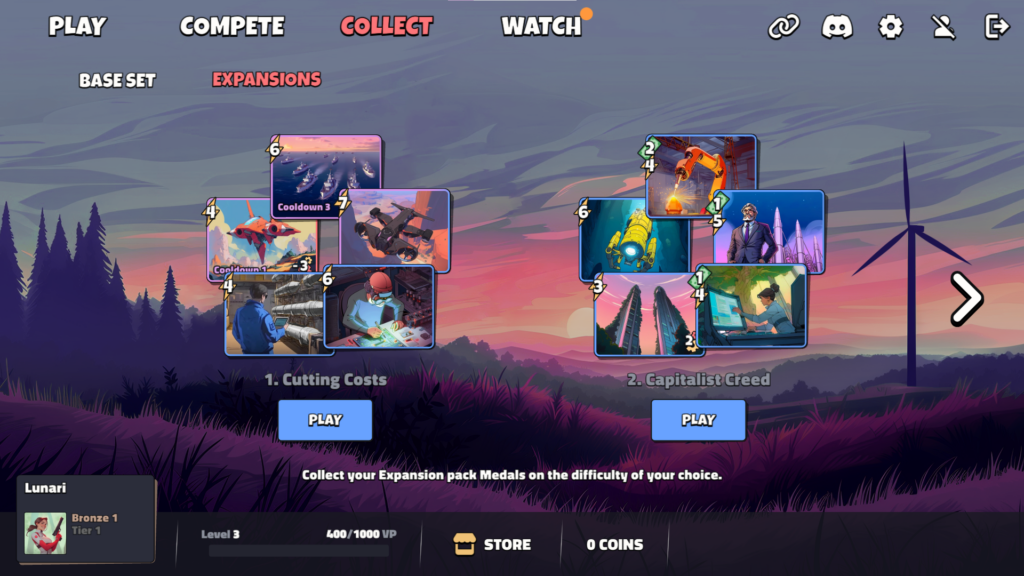
And don’t worry about the expansions – if your PVP opponent has the DLC packs, your specific game lobby will choose cards from all packs available to both players.
The Card Gamer Verdict on Tuggowar
Tuggowar is a compelling competitive game that can serve as a palate cleanser or a main game when one gets tired of Dominion‘s solitaire-like gameplay. With a dedicated fanbase, where the average time played for the Tuggowar demo hovers around 13 hours, there’s always someone out there to play with and to learn from. I’ve only begun to scratch the surface on Tuggowar, but it definitely has staying power in the deckbuilding genre.
Check out Tuggowar, with a free demo, on Steam.
Want more deckbuilder content? Consider our review of Cobalt Core, a cozy space deckbuilder with a grid-like battlefield, or our thoughts on the Deck of Haunts demo, where we play as the haunted house!

